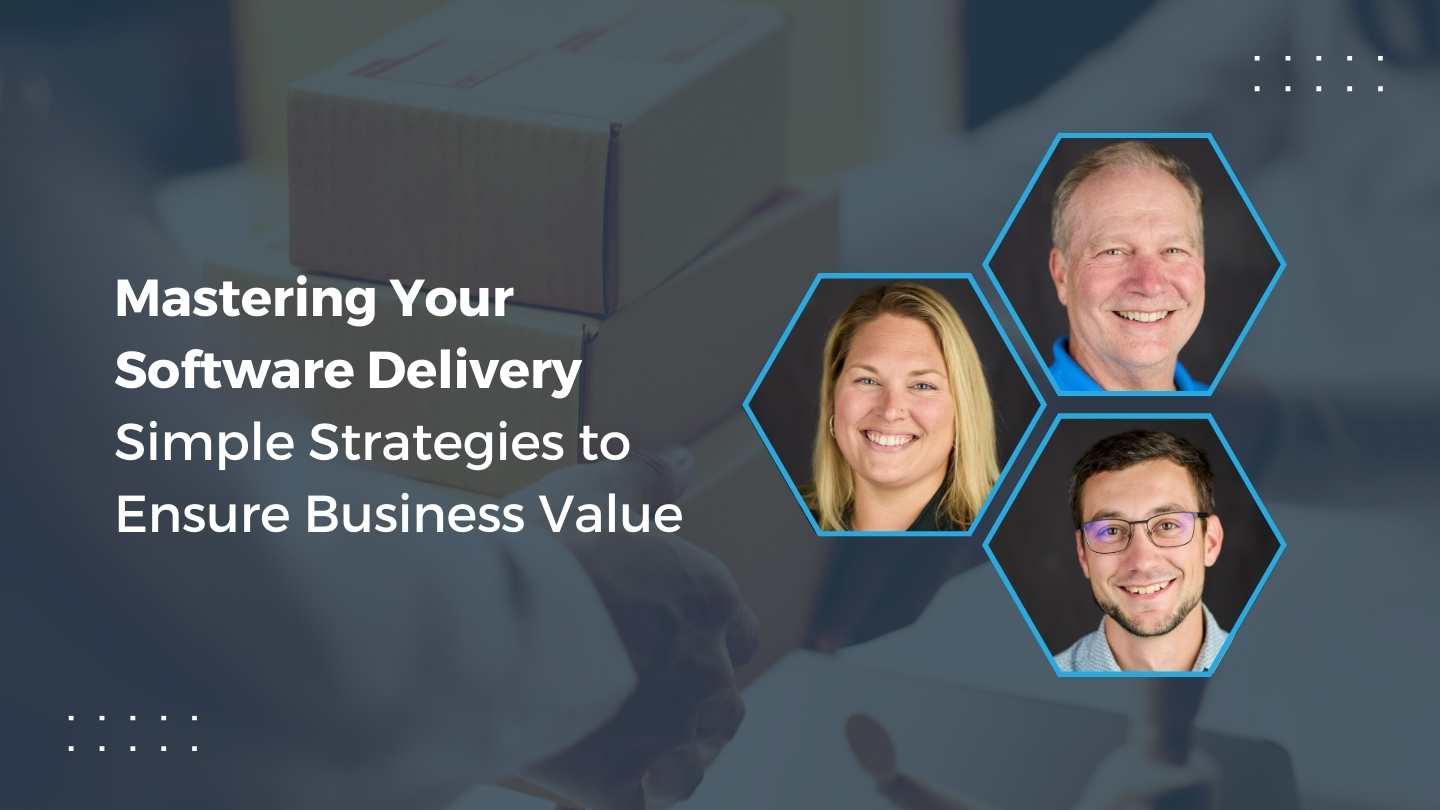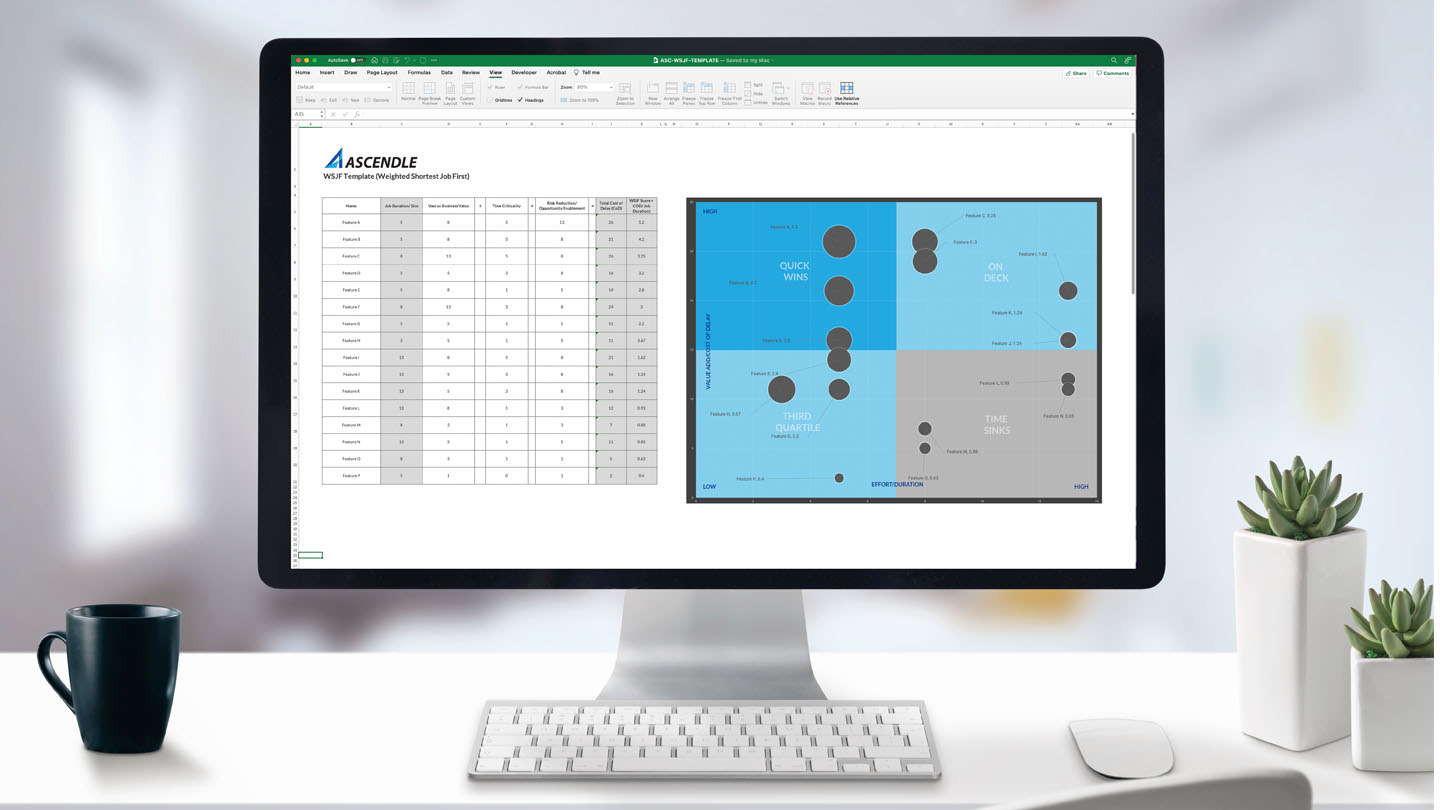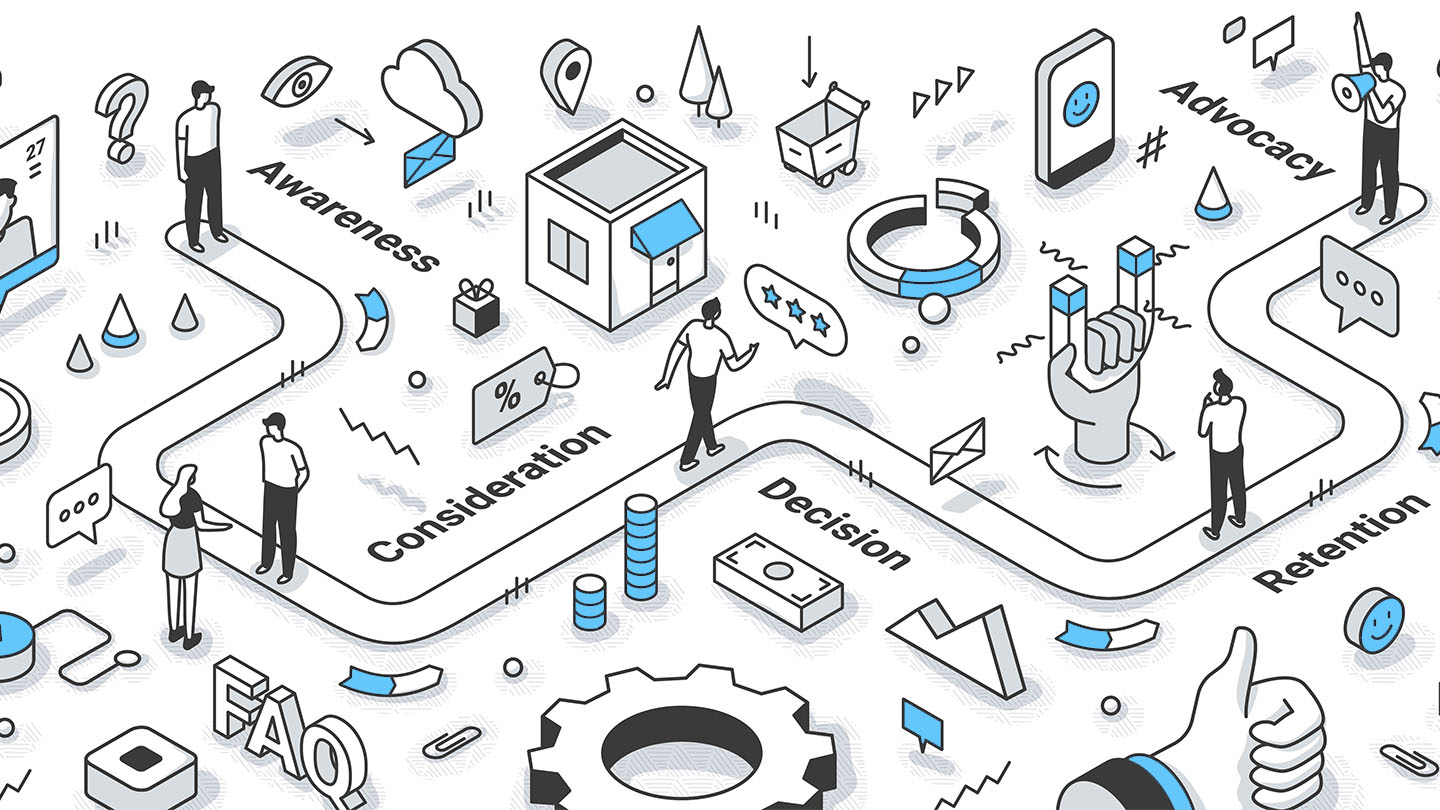Ascendle Blog
Insights on Software Innovation and Product Strategy
Find resources and ideas that help you improve strategy and collaboration, deliver more effectively, and create high-performing teams that generate results. These are the same tools and resources our teams use to maximize business value for our clients. We hope they do the same for you!

Latest Articles

Integrating AI into existing software solutions doesn't just require technical know-how... Consider this your guide to AI integration.
User stories are a fundamental component of any agile development. They are lightweight requirements that represent new functionality that delivers value to business stakeholders.
By keeping user stories small, it’s much easier for the team to do a little bit of everything all the time, a key principle of Scrum. SPIDR is one method of splitting stories in order to fit them into a sprint.
Outcome-Driven Innovation is a strategy and innovation process designed to tie the creation of business value to customer-defined metrics. Here’s how it works.

Effective software product strategy requires a comprehensive approach; secure product success through these development strategies.

Striking the right balance between innovation and risk when developing software products can signal the difference between success and failure.

For companies and developers, it can be a challenge to keep up with all of the emerging tech trends while ensuring software resilience and stability. Here are strategies you can use to mitigate your risks and improve the quality of your software.

Deliver software projects on time and within budget by using effective software development budget strategies that deliver maximum ROI.

Learn the 5 software development success strategies for tech leaders to accelerate time to market and improve customer satisfaction.

Failure is an essential ingredient in the learning process, so let's reframe failure as the learning experience it is.

Underperforming, over-specialized Scrum teams are a problem of the past. Start assembling T-shaped Scrum teams instead.

By applying sports coaching principles to the realm of software development, teams can create positive work environments that foster collaboration, growth, and success.
Popular Topics
Development Guides and Templates
Gain control over your software development processes and priorities
Product Strategy
Go to market on a predictable schedule with strategic insight
Outcome-Driven Innovation is a strategy and innovation process designed to tie the creation of business value to customer-defined metrics. Here’s how it works.

From accurate estimation techniques to managing scope creep and resource allocation, learn how to foster communication and meet realistic deadlines. Enhance your project management skills and ensure successful software project delivery with these valuable insights.

Learn the foundational skills needed to create a product roadmap your development team can execute with speed, quality, and predictability.

Product Strategy is not just a roadmap. Strategy involves defining your targets, identifying measurables, and gaining a true market understanding.

Despite overwhelming enthusiasm for agile, many companies still don’t ship software as consistently or quickly as their competitors. For these companies, determining where tools and coaching [...]
What are the best tools for gathering user data and feedback on your MVP? Here are our top ten effective tools for requesting user feedback.
Agile Process
Gain insight into our approach to agile and Scrum
User stories are a fundamental component of any agile development. They are lightweight requirements that represent new functionality that delivers value to business stakeholders.
By keeping user stories small, it’s much easier for the team to do a little bit of everything all the time, a key principle of Scrum. SPIDR is one method of splitting stories in order to fit them into a sprint.

Deliver software projects on time and within budget by using effective software development budget strategies that deliver maximum ROI.

Failure is an essential ingredient in the learning process, so let's reframe failure as the learning experience it is.

Underperforming, over-specialized Scrum teams are a problem of the past. Start assembling T-shaped Scrum teams instead.

By applying sports coaching principles to the realm of software development, teams can create positive work environments that foster collaboration, growth, and success.
As Seen on 

20 members of Forbes Technology Council talk about the tech leadership advice they've become a bit skeptical about and share their own advice.

19 members of the Forbes Technology Council share critical pre-release quality assurance procedures for development teams here.

20 members of Forbes Technology Council offer their expert advice on establishing effective user acceptance testing processes.

Stay on track to meet your New Year’s goals with these tips from 10 members of the Forbes Technology Council.

If you're looking for advice to help tech leaders and developers ensure their teams are producing better-quality, cleaner code, this article features insight from 16 members of Forbes Technology Council.
As seen on Forbes.com The tech profession is notorious for developing workplace systems to boost team efficiency and productivity. Tech leaders in particular are experts at discovering tools and methods [...]
















